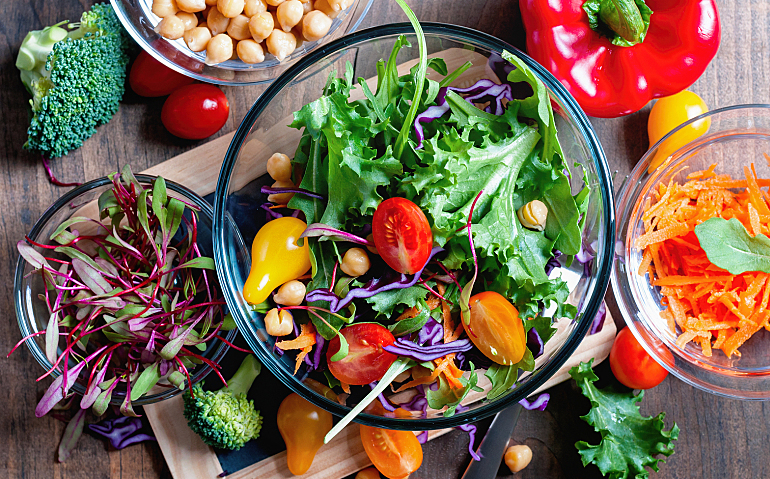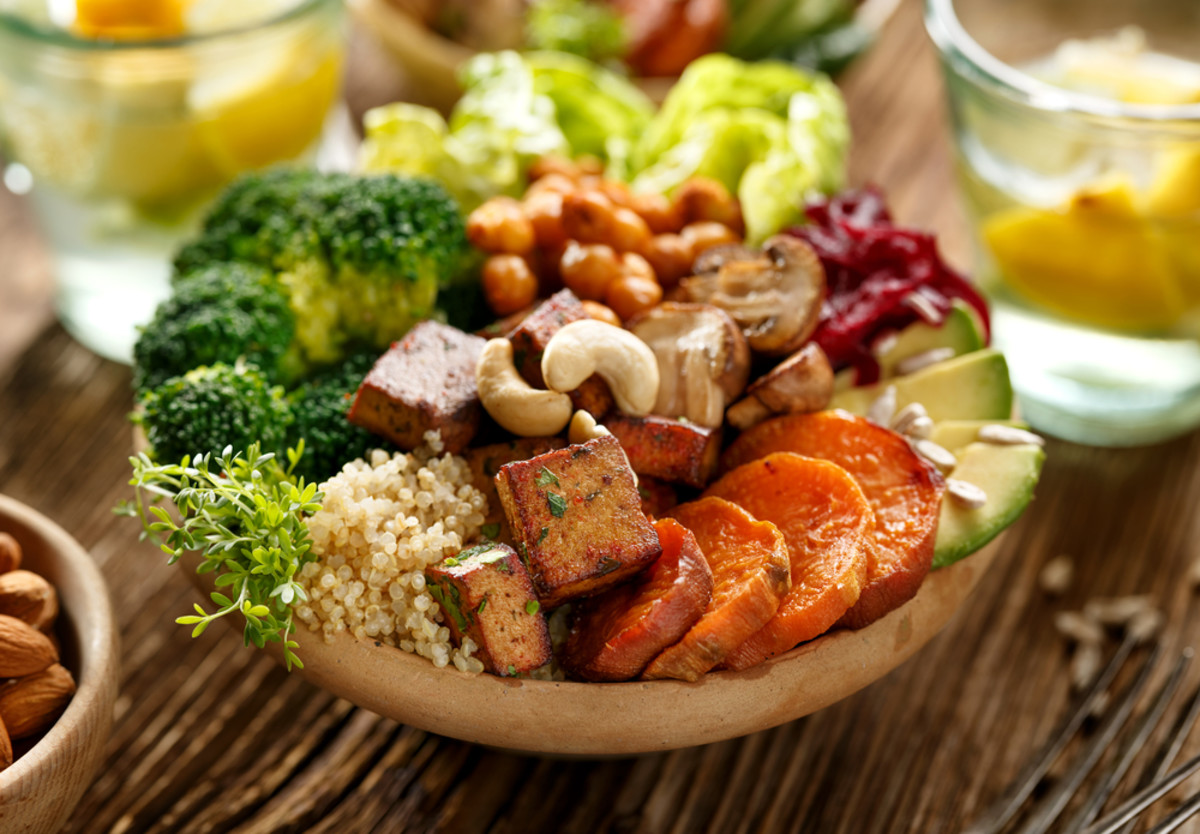What is a vegetarian diet?
There are many reasons for choosing a vegetarian diet – these include concern for animal welfare and/or the enivronment, cultural, religious and health factors. Your ‘why’ is likely to determine what type of vegetarian diet you follow.Â
Typically, a vegetarian diet excludes meat, poultry, game, fish and shellfish, as well as animal by-products such as gelatine. It may include some other animal products – what you eat will determine the type of vegetarian diet you follow. These can be summarised as:Â
- Lacto-ovo-vegetarian – includes both dairy and eggs
- Lacto-vegetarian – includes dairy foods only
- Ovo-vegetarian – includes eggs only
READ ALSO:Â Eat your way to fabulous skin
What are the health benefits of a vegetarian diet?
A well-balanced vegetarian diet which includes plenty of unprocessed grains, vegetables, legumes, fruits, nuts and seeds may reap a number of health rewards. Studies show predominantly plant-based diets may be a healthier way to eat, with fewer reported cases of obesity, heart disease and type 2 diabetes in non-meat eaters. Specifically, those with high blood pressure may benefit – studies show a lower incidence of elevated blood pressure in those following a vegetarian diet.
There may also be a lower overall risk of cancer, even more so for vegans.
Typically, a varied, appropriately planned vegetarian diet contains less saturated fat and more folate, fibre and protective antioxidants including vitamins C, E and carotenoids. Furthermore, most vegetarians are likely to exceed the recommended five-a-day of fruit and vegetables. Eating more plant-based foods rich in phytonutrients may help protect against age-related conditions including those affecting the eye such as cataracts and age-related macular degeneration.Â
Plant-based diets are also considered healthier for the environment. This is because they use fewer natural resources and as such are associated with less environmental damage.

How to ensure your vegetarian diet is balanced
There are numerous benefits to a well-planned vegetarian diet, however, if your diet involves eating processed vegetarian food with high intakes of sugar, salt and fat combined with few vegetables, fruits, wholegrains, nuts and seeds, you’re unlikely to be getting the nutrients you need.Â
Vegetarian diets may, if not appropriately planned, supply lower amounts of calcium, vitamins D and B12, protein and omega-3 essential fatty acids. Minerals such as zinc, iron and iodine also tend to less bio-available from plant foods, which means you may need to eat more of the relevant food sources to maintain appropriate levels.Â
Carefully choosing which foods to include, making used of fortified products like plant milks, breakfast cereals and spreads and eating a wide and varied mix of foods will go some way to ensuring your diet is well-balanced. Â

READ ALSO:Â Is your favourite soup healthy?
How to eat a well-balanced vegetarian diet
- Include protein sources such as eggs, dairy or fortified plant alternatives, soya, pulses, beans, nuts and seeds.
- Eat a minimum of five portions of fruit and vegetables daily.
- Include wholegrain versions of bread, rice or pasta.
- Choose cold-pressed, unsaturated oils, where possible and nuts and seeds including flax, chia and walnuts, as well as omega-3 enriched eggs.
- Include mineral-rich foods such as beans, lentils, nuts, seeds, dried fruit, leafy greens, fortified cereals and plant milks as well as wholegrains.
If you’re concerned your age, health or an existing medical condition will stop you obtaining the nutrients you need, speak to your GP or healthcare practitioner for further advice.Â






